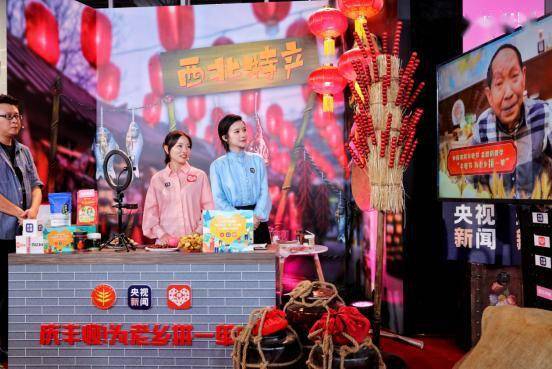China Aims to Develop Smart Agriculture
China is developing and promoting modern agriculture, aiming to combine technology and farming, with the help of e-commerce platforms.
The Chinese Academy of Agricultural Sciences and Peking University signed a strategic cooperation agreement Monday, saying the two parties will strengthen scientific and technological collaborative innovation, work together to build a national rural high-end think tank, and jointly explore a new model of deep integration of agricultural science and education.
On the same day, the 2020 Chinese Farmers Harvest Festival Golden Autumn Consumption Season kicked off in Beijing.
During the event, the Ministry of Agriculture and Rural Affairs, China Central Radio and Television Station, and Chinese e-commerce player Pinduoduo jointly organized five large-scale online and offline events. In the first live broadcast, Chinese agronomist Yuan Longping, also known as the father of hybrid rice, participated in the broadcast.
Yuan said that modern agriculture is not like agriculture in the past. It’s high-tech agriculture, a “mechanized, electrified, and intelligent agriculture.”

As early as 2016, China had already planned to promote modern agriculture in the next five years. According to the plan, China aims to improve agricultural technology and integrate it with the information industry.
According to local reports, technological methods are gradually applied on a large scale in modern agricultural production, liberating manpower and improving production efficiency. Now, with the application of satellite identification, data analysis, artificial intelligence and 5G technology, agricultural production has entered the stage of smart agriculture.
SEE ALSO: Agricultural Technology Booms Amid Covid-19 Outbreak
In recent years, with the widespread application of high-tech agricultural technology, China’s modern agricultural development has also made progress. In particular, a number of Internet companies have begun to use advanced technologies to explore localized digital agricultural solutions, bringing transformation to China’s agricultural modernization.
Starting in May, China’s major e-commerce player Pinduoduo held an agricultural technology competition, aiming to help improve and develop China’s agriculture industry.
Contestants from around the globe have three and a half months to remotely grow strawberries using advanced technologies such as artificial intelligence and machine learning. Participants will be evaluated in terms of how much economic benefit they can bring with their technology, as well as the reliability, scalability and technical merit of the growing techniques.
The winning team will get research funding from the Pinduoduo Agritech Research Fund, an opportunity to help with implementation at a Duo Duo Farm in Yunnan Province, and further academic and commercial support.
“China’s agricultural development is in an important era of transformation and upgrading,” said Gong Yuanshi, vice president of China Agricultural University. “I hope to see top digital agricultural technology applied to agricultural production by holding such a cross-disciplinary competition that integrates artificial intelligence and agricultural planting.”
In its unaudited financial report for the second quarter ending June 30 released last month, Pinduoduo CEO Chen Lei, who took over the position on July 1, said the company will make agriculture its strategic focus while continuing to invest in building user engagement and mindshare.
“Agriculture is a sector that touches the largest number of people and yet had the least amount of digitization in the past decades,” Chen said in a statement by the company on Friday as it released its second-quarter financial results.
Pinduoduo is prepared to invest in technology and operations across different parts of the agriculture value chain to speed up e-commerce penetration, Chen said. “Our aim is to further consolidate our position as China’s No. 1 online agriculture platform,” he said.
As of May 14, a total of 140 million orders have been sold in related agricultural areas and activities, and agricultural and sideline products sold totaled more than 850 million catties.
At present, Pinduoduo has held more than 100 live broadcasts of agricultural assistance activities, covering more than 20 provinces and autonomous regions across the country.
The company also plans to invest in technology related to precision farming, which can help optimize inputs, better control diseases, and reduce production costs.
Other plans include partnering with logistics services providers to develop logistics dedicated to agriculture. The company also said it was looking at advanced packaging solutions to offer its sellers and considering opportunities in warehousing technology and temperature-controlled logistics.
ZTE also did a commercial demonstration of 5G smart agriculture in the Netherlands. In this field demonstration, high-definition photo shooting of potato farms were carried out by drones, and the collected photos were sent back to the server in real time through the 5G mobile network. The time taken for collection and return was reduced from two days to two hours.
“Facing the future, China still needs to further promote the digitalization of agriculture,” said Xu Zhuqing, associate researcher with the China Academy of Science and Technology Development Strategy.
“China should strengthen the front-end R&D layout of the production chain, promote interdisciplinary cooperation, maintain coordination and interaction between scientific research and the field, and use agricultural digitalization to promote productivity.”






